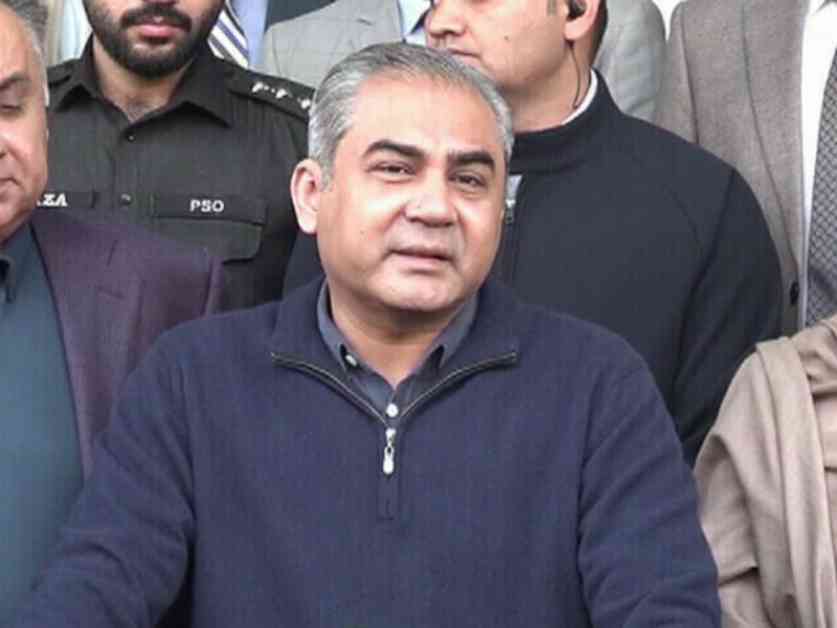Interior Minister Mohsin Naqvi recently stirred up controversy with his announcement that the government would be urging Pakistan Tehreek-e-Insaf (PTI) to reconsider their planned protest on February 8. However, if the party remains steadfast in their decision, Naqvi made it clear that the state would be forced to intervene. The heated statement was delivered during a press conference at the bustling Mega Passport Center on Peco Road in Lahore, adding an extra layer of tension to the already charged political climate.
During the media session, Naqvi harkened back to a previous request made to PTI on November 26, pointing out the inevitability of another call to action prior to the February 8 protest. With a firm tone, he emphasized the potential consequences of PTI’s refusal, hinting at the potential for escalated conflict. The palpable tension in the air was only heightened by Naqvi’s unwavering stance on maintaining order and stability in the face of political unrest.
Furthermore, Naqvi shed light on recent developments in passport services, revealing that the backlog of applications had been successfully cleared a month earlier. In a bid to enhance efficiency, he disclosed plans to establish 14 new passport offices nationwide, with a particular focus on Lahore, where three new centers are set to open. The upgrade of the Shimla Pahari center was also announced, underscoring the government’s commitment to meeting the growing demands for passport services.
Transitioning to the topic of passport authority, Naqvi unveiled plans for the swift establishment of a dedicated body to streamline the passport issuance process. His assurance of ongoing discussions with the Prime Minister and the subsequent initiation of the plan added a layer of transparency to the government’s efforts in enhancing bureaucratic functions. The promise of improved passport services was a beacon of hope for citizens grappling with administrative hurdles.
In a surprising turn, Naqvi hinted at substantial reforms within the Federal Investigation Agency (FIA), particularly in addressing the challenges faced by lawful travelers at airports. His strong stance against the harassment of legitimate travelers underscored a commitment to safeguarding citizens’ rights and enhancing security measures. The impending changes within the FIA and Customs signaled a proactive approach to modernizing and optimizing security protocols for air travel.
When the conversation veered towards illegal migration, Naqvi addressed the pressing issue of individuals attempting to reach Europe and other continents through illegal means, often resulting in tragic boat accidents. The gravity of the situation was not lost on him, as he outlined stringent measures being implemented at immigration counters to curb illegal activities. By acknowledging the rise in illegal migration attempts in regions like Gujarat and Faisalabad Division, Naqvi signaled a proactive stance in combating these illicit practices.
Despite his unwavering support for legal travel, Naqvi issued a stern warning to those engaged in illegal immigration, cautioning them against tarnishing the country’s reputation. While acknowledging the persistent challenges posed by the agent mafia, he hinted at a comprehensive strategy to crack down on illegal activities. The palpable sense of urgency in his tone hinted at an impending crackdown that would leave no room for leniency towards offenders.
Wrapping up the session, Naqvi shared insights from his recent visit to the United States, exuding confidence in the positive outcomes that would soon materialize. His optimism regarding the strengthened ties between the Pakistani and U.S. governments, bolstered by productive meetings with American lawmakers, hinted at a promising future for bilateral relations. The strategic alliances forged during his visit painted a hopeful picture of enhanced cooperation and mutual understanding between the two nations.









